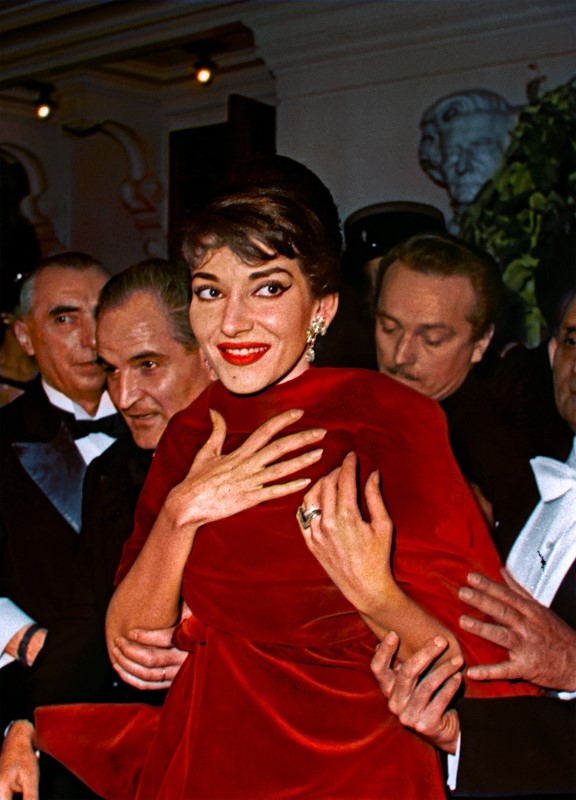'Finding work would be easier if I were a smaller size’ – uncovering a darker side to opera
Lauren McQuistin
Tuesday, October 10, 2023
Where do we stand with issues of body image and eating disorders within today's opera world?
During my first consultation lesson in the US I was instructed to not gain any weight. Being any bigger could jeopardise casting opportunities. I was 21, a UK size 12, and a soprano who would go to any lengths to be exactly what the business wanted. When I shared this with a friend she told me she was instructed to lose weight, and sign up for Zumba lessons, by the institution. I was lucky, I did not face the challenges of sizeism in a way that many others do, and I was advised to stay the same, rather than change.
However, at this time I was in recovery from an eating disorder – a painful part of my past that left many mental scars. My weight was a sign of my recovery, and part of eating disorder recovery involves accepting that your body and weight are allowed to change, as human bodies naturally do. Commentary on size, and what it means for the singer’s career, is an unavoidable, complex and often distressing part of being a performer – one that is seldom reported on. ‘My teacher told me that I was the whole package, except for my body shape and size,’ one singer told me about their experience within the industry. ‘I know that my career and finding work would be easier if I were a smaller size.’
 'Commentary on size, and what it means for a singer’s career, is unavoidable' | Photo: Canva AI
'Commentary on size, and what it means for a singer’s career, is unavoidable' | Photo: Canva AI
Fixations on singers’ bodies is nothing new. It goes right back to the Victorian era, and to Auguste Escoffier’s creation of ‘Melba toast’ in order to help Nellie Melba maintain her diet and figure. Then there’s of course Maria Callas, who was similarly scrutinised for her body. Despite being an artist of the highest calibre – today, and in her time, there remains a narrative about her weight loss and image.
After being told by director Luchino Visconti in 1953 that he would work with her on the condition she lost 30kg, Callas lost that and more within the space of the year, and went from being a rare talent in opera circles, to a universally recognised celebrity. This rapid weight loss is often attributed as a reason for her physical and vocal decline, despite her new figure contributing to her global fame.
'I was called in for a meeting with the head of the programme where he then congratulated me for the weight loss. From that moment on, it became clear to me that this was not a safe topic to discuss within the industry’
She is a cautionary tale for young singers – dramatic weight loss could endanger your voice, however, there is the constant fear and reminder that if your body isn’t a certain size and shape, you may not get cast. One singer explained these pressures within the context of today’s opera world: ‘I have been asked/pressured on several accounts by people of all walks of the operatic industry to lose weight, “fix” my hair, and affect/change my appearance for the satisfaction of the “vision”. I was told by my college director that people find it difficult to believe love stories where the woman was heavier than the man.’
There’s both letters and anecdotal evidence that Callas was always concerned about her weight. Rumours circulated about her either voluntary ingesting or contracting a tapeworm, as a potential reason for her weight loss. While health records accessed by historian Lyndsy Spence state that Callas was suffering from an eating disorder, it is never something she commented publicly on. Looking back with a contemporary eye we can observe that her habit of collecting recipes to look at but never make, anecdotes of her only eating a spoonful of something before abandoning it and having an extremely limited diet certainly suggests disordered eating.
 Director Luchino Visconti told soprano Maria Callas in 1953 that he would work with her on the condition she lost 30kg | Photo: Maria Callas Foundation
Director Luchino Visconti told soprano Maria Callas in 1953 that he would work with her on the condition she lost 30kg | Photo: Maria Callas Foundation
The awareness of what singers eat, and in front of whom, persists to the modern day. ‘I’ve made sure to watch what I eat, or how much I choose to consume dependent on the people present at a given meal, event or cocktail hour,’ another singer explained. A recent study conducted by Marianna Evangelina Kapsetaki found that one in three musicians have experienced an eating disorder. Dr Kepsetaki reported that the ‘increased levels of perfectionism’ alongside the demands of the industry, peer pressure, social isolation and an unpredictable schedule creates ‘pressures that can lead to anxiety and depression, which are risk factors for eating disorders.’
Dr Kapsetaki reported that musicians have a tendency to undercut their needs, both in overworking and avoiding recording health issues (including eating disorders) for fear of losing work. One singer I spoke to mentioned these risk factors, telling me about their experiences struggling with food and body image in the industry: ‘When I was a part of a young artist programme, I lost sixty pounds very quickly due to unhealthy means. People that I worked with were growing concerned and asked the administrators to help. I was called in for a meeting with the head of the programme where he then congratulated me for the weight loss. From that moment on, it became clear to me that this was not a safe topic to discuss within the industry.’
The intersection of discipline, perfection and control that exists in classical music and eating disorders can be exacerbated by the pressures of the industry to adhere to the culturally idealised vision of thinness. One emerging artist in the US spoke about the anxiety they have around maintaining a certain weight: ‘As I have seen more traction in the industry, my temptation toward disordered eating has become worse and more difficult to manage.’
We presently exist in a culture where ‘healthy’ is used interchangeably with ‘thin’ and achieving one can mean sacrificing the other. Eating disorders in dancers have been explored and researched extensively, but not so much in singers – however Dr Kepsetaki’s research suggests that 80 per cent of opera singers are classified as having orthorexia nervosa, where under the guise of ‘healthy’ or ‘clean’ eating the sufferer engages with restrictive behaviours. Not only must singers adhere to musical perfection, the job depends on their image and how people perceive it in alignment with beauty standards. The relationship with the body is a very personal, vulnerable experience – and both the voice and body are in public view, open to public opinion.
'We can’t create a different history for Callas, but we can talk about her body in a humane way and create a different environment of empathy and awareness for future generations of singers'
One soprano shared that she feels her entire being is ‘owned’ by opera, saying: ‘Because we play characters onstage using our bodies, people feel comfortable –even entitled – to make comments about our physical appearance, and it makes it hard for me to live my life just for myself. I sing lighter soprano repertoire. I’ve had an agent tell me to “not gain a pound.” For me, the pressure to keep my body as tiny as possible feels extremely intense.’
In a critique-oriented industry singers are taught how to take feedback, adapt and improve. Very rarely are they taught self-esteem, and are instead taught how to make themselves successful based on other people’s opinions. Opera criticism continues to comment on singers bodies as freely as they would their voice; a 2014 review of Glyndebourne Opera’s production of Der Rosenkavalier called Tara Erraught ‘dumpy.’ This is not an isolated incident, with one singer telling me she sought out therapy for ‘traumatic commentary’ on her body: ‘The industry is not interested in featuring me or anyone who resembles me at the forefront of their season.’ She cites a reason for this as the homogenous donor base, who are only interested in seeing a ‘certain type’ of person on stage.
In viewing and reviewing opera there is a necessary amount of suspension of disbelief, however in the area of the singer’s bodies there are still rigid ideas of how they ought to be. A soprano interviewed reflected that: ‘People of all sizes fall in love, have sex, seduce/are seduced, have a breakdown, die. Opera’s image of who can do those things seems to be reserved for small bodies.’
It’s a simple narrative to believe Callas was a woman who ingested a tapeworm as a simple and consensual means to achieve her weight and career goals. It’s less comfortable to think that a vulnerable woman was pressured into losing half her body weight, burned out, was offered no support, leading to a nervous breakdown in early 1958.
Many sopranos feel very connected to Callas, as the icon and the artist, though this is not without its complications. ‘I remember a time when I was undergoing one of my many yoyo-diet phases to get ready for auditions and reading about her difficulties with singing post-weight loss – a weight loss she was all but forced into,’ one singer reflected. ‘From your first day as an opera singer, we are told that we’re lucky to be doing it, so when my mental health began to decline I convinced myself that it was some sort of divine accountability keeping me on track to “accomplish my dreams”.’
Suffering quietly with a treatable illness is not the tax artists should pay for having a career. We can’t create a different history for Callas, but we can talk about her body in a humane way and create a different environment of empathy and awareness for future generations of singers.






